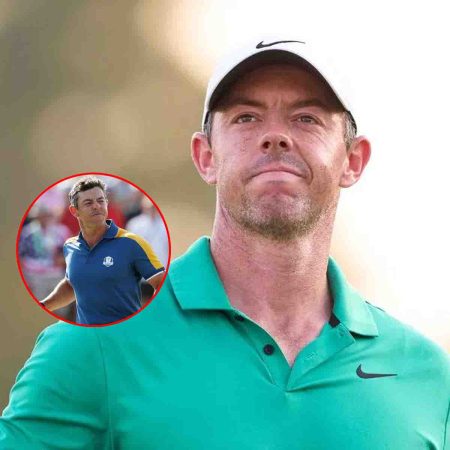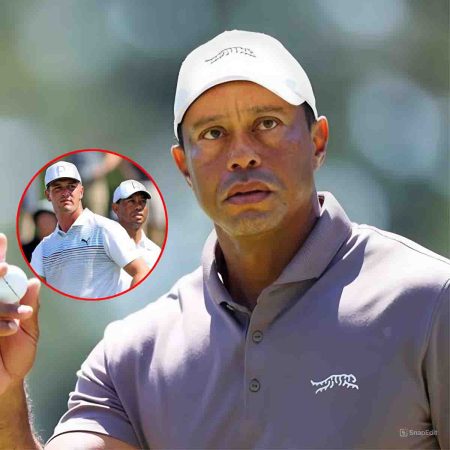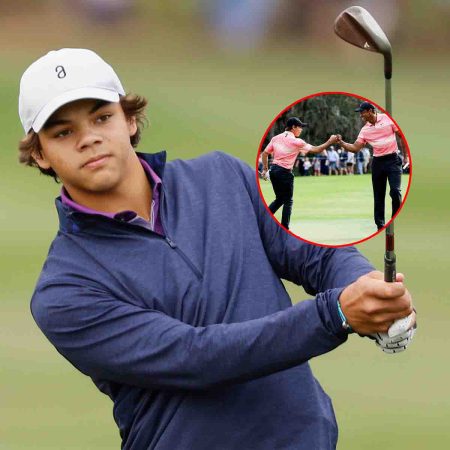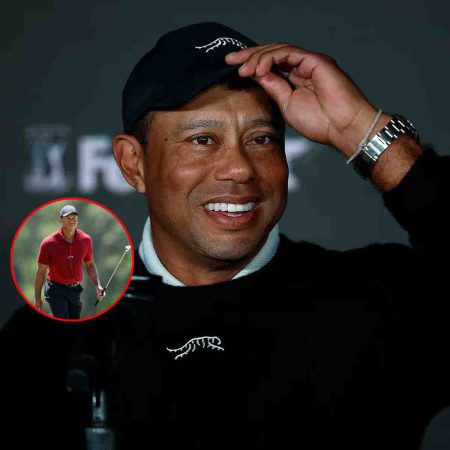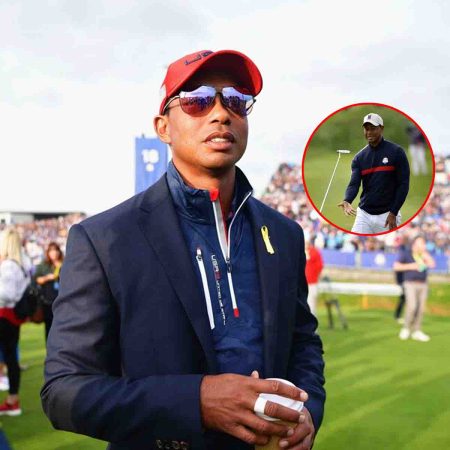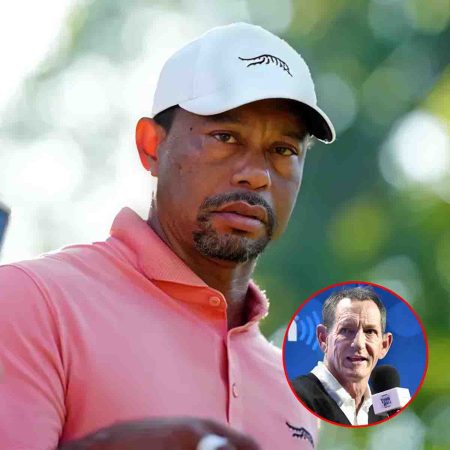A few hours after Kevin Durant announced he was heading to the Brooklyn Nets in free agency in 2019, he posted a picture of himself riding a bike in the shadow of the Golden Gate Bridge. His decision ended a three-year run with the Warriors that included two NBA championships and, eventually, a familiar urge for a new experience.
“I wandered everywhere, through cities and countries wide,” an accompanying caption on the now-deleted Instagram post read, quoting Seattle-born novelist Roman Payne. “And everywhere I went, the universe was on my side.”
The passage reflects an ongoing theme in Durant’s life.
“I’ve been a nomad since I was a kid,” he tells me. “I done moved in five different cribs as an adolescent. I done went to three elementary schools. I done went to two middle schools. … I done went to three different high schools. I went to Texas for one year, moved. I went to Seattle for one year, moved on to the next. I just think it’s my place as a human being to explore all parts of Earth.”
Basketball has transported Durant from Oklahoma to California to New York and beyond and has paired him with teammates ranging from Russell Westbrook to Steph Curry to Kyrie Irving to Chris Paul. Durant’s unparalleled blend of length, versatility, and shooting has allowed him to fit into all manner of basketball situations. But for all Durant has achieved, his career is not associated with any one franchise, like Curry’s is with the Warriors. And compared to other superstars who have changed teams multiple times, like LeBron James, Durant has yet to win at the highest level on a team built around him. Durant has solidified himself as one of the best players of his generation, but his career off the court has been characterized by a sort of searching.
The latest chapter of Durant’s odyssey brings him to Phoenix, where we’re walking down a corridor in the bowels of Footprint Center following a 27-point, 11-assist performance in a Game 1 loss during the Suns’ first-round series against the Clippers. He’s been in Arizona a little more than two months; a trade from Brooklyn ended his rocky four-year Nets tenure, which included an extended rehabilitation of his torn Achilles, a complicated relationship with Irving, and a collapse of the vision he had upon his arrival.
In Arizona, another handpicked destination, Durant joins Paul, Devin Booker, and Deandre Ayton on a ready-made title contender, though his adjustment process got off to a somewhat halting start. When he was traded in February, Durant was rehabilitating a knee injury that forced him to miss his first six Suns games. Then, after three games in the lineup, he sprained his ankle prior to his home debut, which forced him to sit out another 10 games and eroded any chance of team cohesion entering his first postseason appearance representing the desert. And at age 34, in his 16th season, Durant’s opportunities to reach the NBA mountaintop are numbered.
But as he makes a run at his third ring, Durant is embracing the journey that brought him to Phoenix and is more cognizant than ever about what the game means to him.
“I want to play until I can’t no more, man,” he says. “A title is incredible, but what it’s going to mean to me as an individual? I want to win a title for a city, for my teammates, for the organization. Is it going to get me more notoriety, more attention, a ring? It’s not really about me. That’s how I look at championships. So I want to do this together. I’m looking forward to going on the journey with these guys.”
:no_upscale()/cdn.vox-cdn.com/uploads/chorus_asset/file/24609061/1250213051.jpg)
Photo by Andrew D. Bernstein/NBAE via Getty Images
When I last saw Durant 13 months ago in Brooklyn, he was in the midst of rekindling all he’d lost in Golden State. He reconciled with his mother, Wanda, whom he’d been estranged from since his last year in the Bay. He had partnered with Irving, whom he’d developed a close friendship with in the years leading to his move back east. He had played some of his best basketball in the 2021 postseason, coming within a shoe size of the Eastern Conference finals. And he had recovered the sense of self he’d lost during his time away from the game while rehabilitating a torn Achilles.
“The knowledge and information that the Brooklyn Nets gave to me on just my body in general helped me learn more about myself,” he says now. “So it was a great four years there. And obviously, on the court, with our team, there was a lot of ups and downs with our roster, but once the ball tipped, once we got into practice, I just loved working with everybody there.”
Partnering with Irving in Brooklyn represented an opportunity for Durant to build something of his own, three years after he’d slotted seamlessly into the already dominant Warriors. Durant and Irving’s union joined two of basketball’s most talented offensive players, and, after chemistry issues with previous teams, they were excited about the opportunity to play together and build a team in their image.
“I’ve been a nomad since I was a kid. … I just think it’s my place as a human being to explore all parts of Earth.” —Kevin Durant
“He was a hero to me,” Irving told me last spring. “Still is. … But at that time, when I was 19, 18 years old, I was looking up to him and a few other guys in the league. And for me, it wasn’t just about the way he put the ball in the hoop; it was about how humble he was as a person, and [I] just took that in and used it as something I could be.”
“That was an important part of my life,” Durant says of his time with the Nets. “Incredible four years. I’ve grown to love the state of New York, the city of Brooklyn. Good family and friends there. Played some of the best ball of my life there. Gained a lot of confidence … that I lost when I tore my Achilles.”
But organizational harmony proved hard to come by in Brooklyn. During the 2021-22 season, Irving sat out the first 35 games after refusing to get vaccinated against COVID-19. Irving’s frequent absences frustrated Durant, who had often defended his friend publicly. And James Harden, whom Durant and Irving successfully pushed Brooklyn to trade for in January 2021, sought a trade in February 2022, breaking up the Nets’ All-NBA trio.
By the end of the 2021-22 season, Harden had been dealt, and the Nets had been swept in the first round by the Celtics, which added to Durant’s frustrations. A couple months after the postseason exit, Durant demanded a trade, citing his frustrations with coach Steve Nash, whose relaxed practice schedule didn’t align with Durant’s hope for sharper play. At the end of a tumultuous summer, Durant backed down from his trade request after a meeting in which he, Nash, Nets general manager Sean Marks, and team owner Joe Tsai “agreed to move forward with [their] partnership.”
But after Durant injured his knee three months into the 2022-23 season, Irving, in a contract impasse with the Nets, requested a trade. Durant followed suit a day later, and by the deadline, Irving had been dealt to Dallas, and Durant was heading to Phoenix.
“You got to ask them, to be honest,” Durant says when asked what went wrong in Brooklyn. “My job is to play, and I think I did that. Rehab, a lot of stuff was out of my control that I didn’t … I can’t speak on, to be honest, but I just thought we didn’t play enough minutes together. That’s all.”
When asked about where his relationship with Irving stands now, Durant seems to still be reconciling it himself.
“That’s something I’m going to keep internal. I don’t want to expose our relationship,” Durant says. “I think that’s deeper than basketball, but I wouldn’t say it was a problem. I didn’t think it was a problem.”
The dissolution of the Nets put Durant in a familiar position: looking for what would come next. In Brooklyn, he had wanted to build something new with his pal. But after four years of trying, he instead found himself back on the move—this time to Phoenix, where a meeting with his past was on the horizon.
:no_upscale()/cdn.vox-cdn.com/uploads/chorus_asset/file/24609062/452289537.jpg)
Photo by Rocky Widner/NBAE via Getty Images
The Suns’ matchup with the Clippers has offered Durant his first chance to beat Westbrook, his first superstar running mate, in a postseason series. The two came of age in Oklahoma City and led the Thunder to a Finals berth in 2012. In offseasons, they ran on sand dunes off the Malibu coast and played pickup games at UCLA, Westbrook’s alma mater, building one of the most promising partnerships in professional sports.
Then, in 2016, Durant left the Great Plains and headed west to the Golden State Warriors, where he saw an opportunity to expand his game, live in a new place, and help the Warriors achieve their goal of becoming the best team in league history.
When Durant left, Westbrook, then 27 years old and entering his prime, seemed frustrated by the departure. Following Durant’s decision, Westbrook posted a picture of cupcakes, a perceived shot at Durant. Before their first matchup as opponents, Westbrook dressed up as a photographer, another barb at Durant, who freelanced as a photographer in the Bay Area for The Players’ Tribune during Super Bowl 50 in 2016, five months before he left the Thunder. And in a 2017 matchup in Oklahoma City, the two exchanged words after Westbrook stripped his former teammate during the third quarter.
But Durant doesn’t think there was ever any animosity between him and his former teammate.
“I don’t think we was ever in a bad place,” Durant says. “I don’t think he was throwing shade at me either. I’ve never really thought that anything Russ was doing was directed at me.”
“Even the cupcake stuff?” I prod.
“Yeah, even that. I didn’t think that was directed at me,” he responds. “And I’m going to stand on that. I don’t think we ever had a problem or beef, because beef is deep, man. I didn’t get the sense that he was hurt. I just thought that he had an opportunity to get a max deal, super max deal, get an MVP, have his own team. And I thought that he handled that pretty well. And he looked happy doing it.”
Now with the Clippers, Westbrook seems to revel in his matchup with Durant; in the first half of Game 2, he yelled loudly toward the crowd after blocking Durant’s shot. But following the game, after Durant poured in 25 points to even the series, the 7-footer came across his old bud near the players’ lot. After some small talk, the two hugged and went about their days.
“I don’t think we was ever in a bad place. I don’t think he was throwing shade at me either. I’ve never really thought that anything Russ was doing was directed at me.” —Durant
“If I need something from Russ, like if I hit him up someday, I’m sure he’ll text me back,” Durant says. “It’s big daps and big hugs. Hard daps and big hugs with us, man.”
And in Los Angeles, following a Game 4 win in which Westbrook scored 37 points, Durant had a message for anyone ready to criticize the mercurial star.
“People are going to always criticize when you’re successful and doing your thing for this long,” Durant told reporters. “Somebody is always going to find something they don’t like about you. But Russ has been resilient his whole life. He comes to work, doesn’t say much, and just comes to hoop.
“When he retires, people are really going to tell the truth about how they feel about his game. Right now, a fun thing to do is to make a joke out of Russ. The way he’s been playing since he got with the Clippers is showing everybody who he really is.”
As Durant is trying to jell with his new team, his matchup with Westbrook calls back to the early days of his NBA life—before Golden State, before Brooklyn, and before Phoenix. But with the Suns now up 3-1 against the Clippers, largely thanks to Booker’s midrange brilliance and Durant, KD is more interested in getting comfortable with the Suns than revisiting his past.
“I’m always letting go. Trying to let go more and more each day,” he admits. “I’m in a good space. I’m adjusting, that’s the thing.”
:no_upscale()/cdn.vox-cdn.com/uploads/chorus_asset/file/24609063/1483215634.jpg)
Photo by Christian Petersen/Getty Images
After four years of attempting to build continuity in Brooklyn, Durant is trying to find familiarity on the fly in Phoenix. His newest teammates are doing all they can to make him feel welcome.
“It’s been cool because we’ve been like family for a long time,” Paul tells me. “My mom and his mom [know each other]. Rich Kleiman, who works with K, he’s in my fantasy football league. His brother, Tone, like we family, extended family. So everything was seamless.”
Similar goodwill has been extended to Durant from the third member of the Suns’ Big Three. “I had that man on my wall, man, growing up,” Booker tells me. “I had a Fathead of Kev. … I always said he was my favorite player.”
Durant has long had an affinity for Booker, dating back to when the Suns guard was an unafraid rookie willing to go at anyone. “We played against each other, and that was my thing coming into the league,” Booker remembers. “When I get to play against my idols, I try to treat every game the same, but I’m going to bring a little extra that night, a little extra physicality. I just want people to feel my presence, and I think he had a high respect for that.”
Such camaraderie has helped Durant’s transition back to the Western Conference; since his arrival, the Suns are 11-1 when Durant is in the lineup. But problems related to the lack of continuity due to Durant’s absence have occasionally surfaced in his first postseason with the Suns.
“I had that man on my wall, man, growing up. I had a Fathead of Kev. … I always said he was my favorite player.” —Devin Booker
In the final minute of their Game 1 loss, the Suns burned two timeouts after failing to get into a proper set. In the waning moments, with the Suns down three, Booker found himself at the top of the key with Durant to his left and the basket in his sights. After Durant told him to “go!” Booker drove to the basket, where he was blocked by Westbrook, effectively ending the game.
“Every moment matters,” Durant told me following the loss. “And every time we get on the court together, it matters, so we just try to make those moments count.”
Durant, perhaps the NBA’s most malleable superstar, has experience finding the right balance with star teammates. He’s confident he and Booker will figure it out quickly. “I know his game; he knows mine. So there’s going to be times where it’s going to be his game. There’s going to be times it’s my game, but when you got guys with no ego, selfless, just care about balling, care about winning, it don’t really matter.”
Two nights later in Game 2, Booker poured in 38 points and followed it up with 45 points in Game 3 to help give the Suns a 2-1 series lead. “All-time great performance,” Durant raved about his teammate following the win. “I almost expect stuff like this from him at this point in his career.”
In Game 4, the duo combined for 61 points to give Phoenix a commanding 3-1 lead in the series and put Durant one win closer to a third title.
“He’s a champ; he has a résumé,” Booker tells me. “You hear people talk top 10, top five to ever play the game, and at this point, it’s adding hardware for him. I know another championship will help justify that, and our job is—all of us, we all want it that bad—to do it for each other. And I believe that we have the talent to do it, we have the system to do it, and all it is now is just doing it.”
This postseason is Durant’s best chance to win a title since his Golden State days. To do so, he will need to once again find his way in a new system with new teammates—this time almost entirely during the crucible of playoff basketball. Durant is prepared for this. After 16 seasons in the league and on his fourth franchise, he believes he can fit anywhere, including in an offense that’s still figuring itself out.
So is Durant, who has come to feel at home in this process. “That’s where I’m most comfortable,” he says. “I feel like if you are who you say you are, you can just adapt to anything and just be.”
Source: theringer.com



